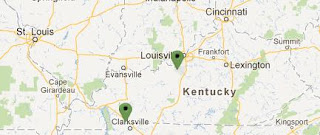But Kentucky has something very important to bring to the national movement to bring U.S. drone killings under control. Kentucky's Rand Paul has been a lone voice in the U.S. Senate asking questions about drones and putting his foot down against the unilateral exercise of executive authority in conducting war by drone.
Recently, some critics have suggested that Senator Paul is turning "soft" on drones.
All of this is very important because Rand Paul is a very likely presidential candidate -- and even more important because his candidacy as the Republican nominee might dramatically shake up existing assumptions about how the U.S. projects force in the world. For instance, "Mr. Paul said he believes that war should be fought only when Congress authorizes it and that President Obama has overstepped his constitutional authority in using drones as a substitute for traditional military forces," according to the New York Times, and those very positions "have alarmed powerful elements of the Republican base."
With the early beginning of the 2016 presidential race, there's no time like the present to find out what kind of candidate Rand Paul might turn out to be.
Related posts
 |
President Obama has nominated David Barron to be a judge. Rand Paul correctly points out that Barron is tied to some very troubling legal memos -- the ones the administration uses to justify drone killings.
(See Obama to Senate: "Stop Asking So Many Questions About My Judicial Nominees" )
Hillary Clinton signaled the beginning of her 2016 presidential campaign with a spread in People magazine in June . . . not to mention the publication of a memoir, Hard Choices. It's a campaign full of "get tough" posturing.
(See One Little Word That Will Sink the Hillary Clinton Presidential Run ("Obliterate") )
Yesterday, as all the other senators sat patiently through the obfuscation of Barack Obama's Three Horsemen of the Apocalypse -- Secretary of State John Kerry, Defense Secretary Chuck Hagel, and Chairman of the Joint Chiefs General Martin Dempsey -- Rand Paul gave 'em hell.
"Stand up for us and say you’re going to obey the Constitution and if we vote you down — which is unlikely, by the way — you would go with what the people say through their Congress and you wouldn’t go forward with a war that your Congress votes against."
(See Obama's Syria "Vote" in Congress: Democracy? or Theater? )




